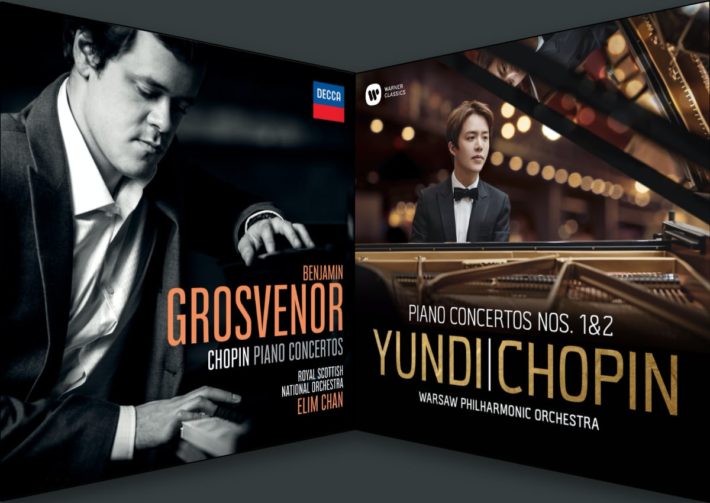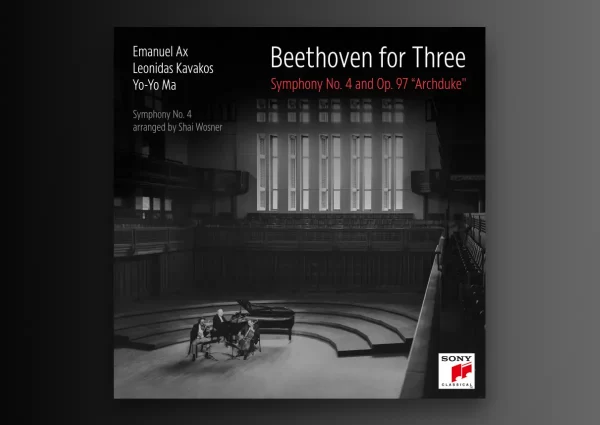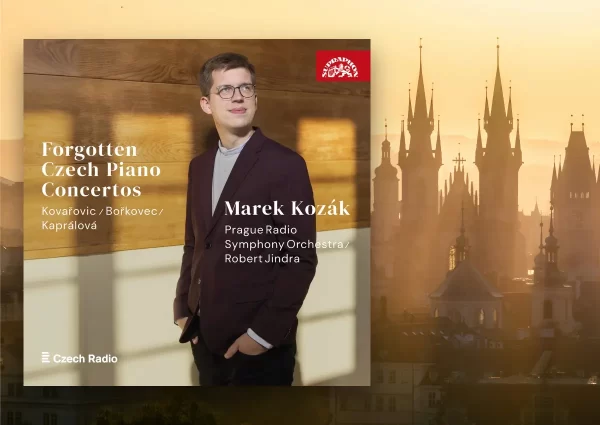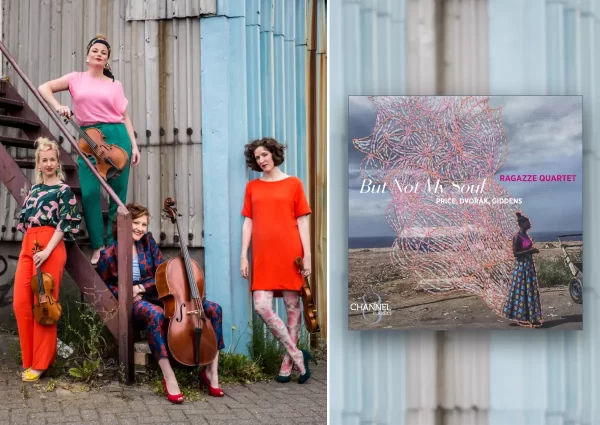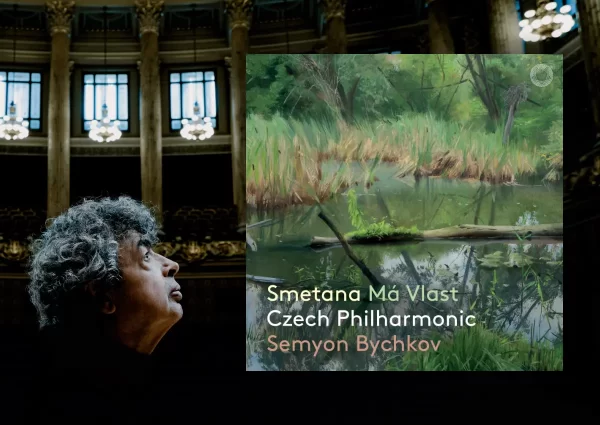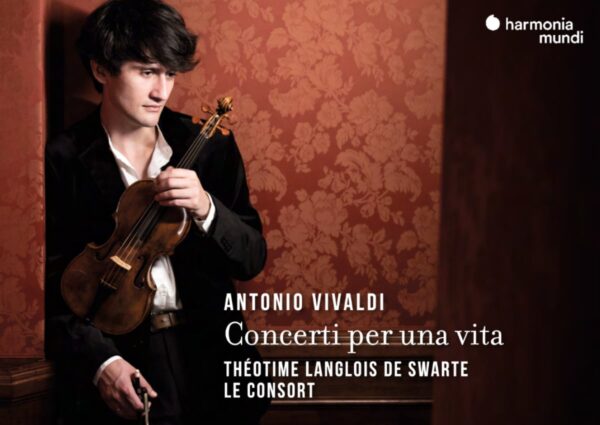Within weeks of each other, Warner Classics and Decca have both released an album of the two Piano Concerto by Chopin, played by two distinguished pianists. Benjamin Grosvenor is accompanied by the Royal Scottish National Orchestra under Elim Chan, while Yundi Li (now referred to plainly as “Yundi”), is directing the Warsaw Philharmonic Orchestra from the keyboard, an orchestra that accompanied him in the 14th Chopin competition in 2000, where he took home the gold medal. Yundi has already recorded the First Concerto, while Grosvenor has a selection of Chopin pieces in two of his solo albums.
Purchase Grosvenor’s Album on Amazon
Purchase Yundi’s Album on Amazon
Yundi and Grosvenor bring different approaches to the first movement of the E Minor Concerto, referred to as “No. 1” although composed after the premiere of the Second Concerto. It’s worth examining the orchestral introduction to this “Allegro Maestoso” in both performances. Chan opens with a forthright approach, emphasizing the “allegro” instruction. From the outset, the brass make their presence felt, coming to the fore immediately, the conductor expertly shapes of the cello lines. Yundi is more pensive in this orchestral opening, following the ‘majestic’ tempo marking more closely and is overall more concerned with the long term direction of the music. Although Lacking the level of motivic details of Grosvenor and Chan (especially impressive in the development section), Yundi has more awareness of the arching musical phrase and long term direction of the movement. In the solo part, Yundi has a subtler emotional projection than Grosvenor, yet he combines a stronger, more obvious and convincing rubato. Yundi feels more poetic, while Grosvenor plays with clarity of sentiment.
Yundi takes a broader tempo in the slow movement, with a more operatic approach. Strings are sweet and follow instinctively behind. Grosvenor is quicker, more sprightly, and here the Scottish strings have a different tone. His performance of this movement reminded me of a song without words. Here and throughout both albums, it becomes clear that Grosvenor’s colors are primary and frank, while Yundi’s are somewhat less defined but with equal validity in their expressive quality.
In the final movement, Grosvenor is considerably quicker than Yundi, shaving off more than 40 seconds. Yundi’s more relaxed approach allows for crisper articulation, while Grosvenor is more readily virtuosic. Reaching the end of this Concerto, it strikes me that both Yundi and Grosvenor find different intricacies in the piano writing, both equally valid, heightening different facets of Chopin — the musical poet of emotion (Yundi) vs the dazzling center-of-attention virtuoso (Grosvenor).
Related Classical Music Reviews
- Review: Maurizio Pollini Plays Chopin Op. 55-58 (2019)
- Review: “Destination Rachmaninov – Arrival” – Piano Concertos No. 1 & 3 – Daniil Trifonov
- Reissue Review: Moura Lympany – The Decca Legacy
In the orchestral introduction of the Second Concerto, this time it’s Yundi’s exposition which is more forthcoming, laying down the gauntlet of clarity, whereas Chan for Grosvenor is initially more ethereal. Grosvenor’s dynamics become starker, more defined, and Chan brings forth clearer brass and woodwind. Yundi’s more poetic overview is evident once more, the melodies are elongated chains of sound, with a more introverted approach; Grosvenor is more extrovert and commanding here, akin perhaps to Martha Argerich tumultuous version with Dutoit.
Yundi is slower than Grosvenor in the second movement. In the former’s version, the Warsaw Philharmonic has moments were confidence is lost, as in the questionable intonation in the opening. Yundi’s right-hand occasionally forces the tone, jarring slightly. Chan brings certainty to Grosvenor’s more firm footed approach, orchestra and pianist are more unified and the shaping of musical lines is more detailed. Overall, the entire movement feels more spontaneous, Grosvenor is at his strongest in captivating both the warmth and tenderness but also straying into the shadows when called for.
Grosvenor’s “Allegro Vivace” airs on the side of caution, creating a more airy opening, whereas Yundi’s quicker tempo and cleaner tone capture the spirit of the dance better, emphasizing the mazurka rhythms. Grosvenor is a little more straight-laced, but he does loosen on a number of occasions to great effect.
The recordings of both albums are excellent, although Decca has the edge, allowing for some more detailed listening experience. The sound of the Royal Scottish National Orchestra is flawless, with a particularly fine wind section (notice the highly expressive flute and bassoon parts). For those who prefer the lyricism of Murray Perahia, Yundi’s recording would be the recommendation. For those preferring Argerich’s edgy nervousness, Grosvenor’s renditions are closer to her level of panache, and Chan ensures soloist and orchestra are one throughout. Chopin connoisseurs wouldn’t want to be without these two very different recordings, both with a lot to say and admire.

Chopin – Piano Concerto No. 1 and 2
Benjamin Grosvenor – Piano
Royal Scottish National Orchestra
Elim Chan – Conductor
Decca Classics, CD 4850365
Chopin – Piano Concerto No. 1 and 2
Yundi Li – Piano and Conductor
Warsaw Philharmonic
Warner Classics, CD 9029532018
Albums Mentioned In This Review
Read more classical music reviews or visit The Classic Review Amazon store
Follow Us and Comment:
Get our periodic classical music newsletter with our recent reviews, news and beginners guides.
We respect your privacy.

